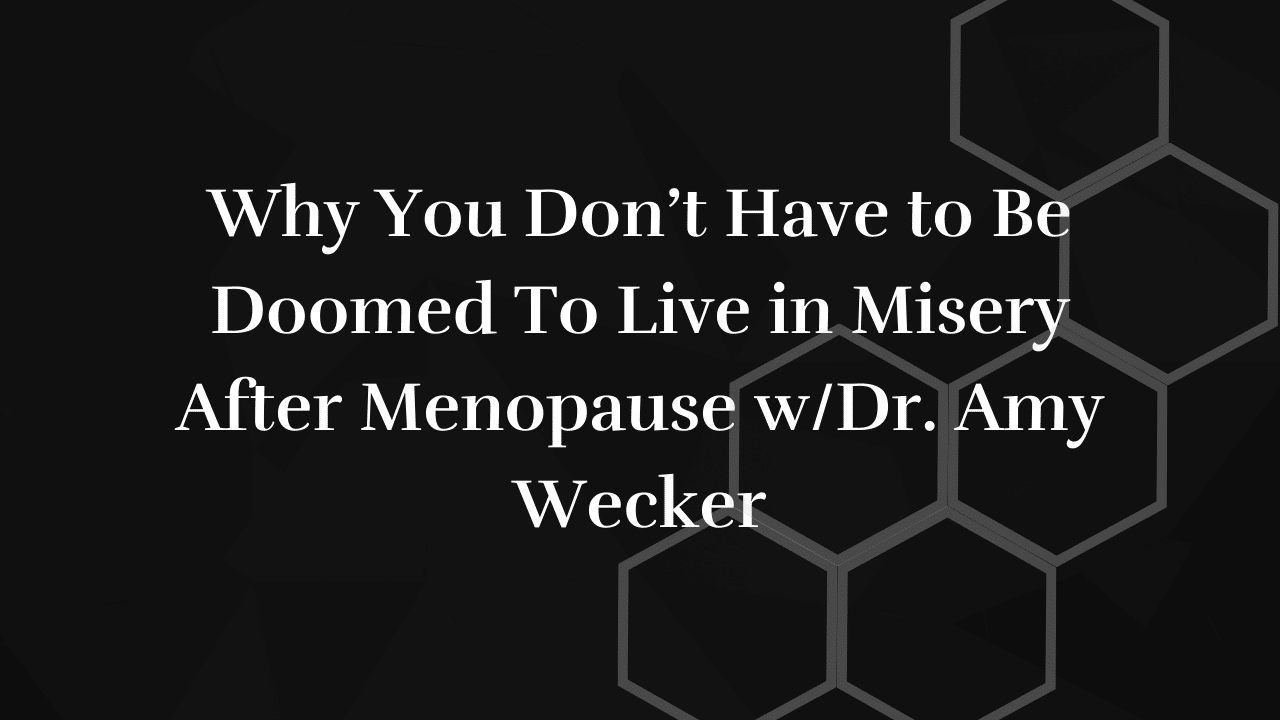Bioidentical Hormone Replacement Therapy (BHRT)
Menopause or perimenopause, is a natural phase in a woman’s life which marks a significant transition that goes beyond the cessation of reproductive capabilities. In an oversimplified form, menopause is a stage where women lose 95% of their natural hormone production in a 5 year span of time. Pause for a moment and think about that. While you may be familiar with the well-known symptoms like hot flashes, night sweats, and mood swings, it’s crucial to recognize that these are just the tip of a very deep iceberg.

Navigating Menopause: Unveiling The Alarming Truth Beyond The Symptoms
The effects of menopause extend far beyond mere discomfort. Studies have demonstrated a shocking 50-85% increase in the likelihood of developing metabolic syndrome which includes: insulin resistance, diabetes, hypertension, and obesity. Even more alarming is the range of severe health conditions including: aggressive heart disease and cardiovascular disease, strokes, various forms of cancer, osteoporosis, dementia, Parkinson’s disease, and Alzheimer’s disease.

Navigating Menopause: Unveiling The Alarming Truth Beyond The Symptoms

The effects of menopause extend far beyond mere discomfort. Studies have demonstrated a shocking 50-85% increase in the likelihood of developing metabolic syndrome which includes: insulin resistance, diabetes, hypertension, and obesity. Even more alarming is the range of severe health conditions including: aggressive heart disease and cardiovascular disease, strokes, various forms of cancer, osteoporosis, dementia, Parkinson’s disease, and Alzheimer’s disease.
Common Signs And Symptoms Of Menopause/Perimenopause
Physical
- Hot Flashes
- Night Sweats
- Decreased Energy
- Increased Abdominal Fat
- Decreased Muscle mass
- Poor Recovery Time & sleep
- Decrease morning Libido
- Hair Loss
- Decreased Lubrication or Vaginal Dryness
- Painful Intercourse
- Stiffness Or Pain In Muscles And Joints
Cognitive
- Mental fog
- Decreased Memory
- Loss Of Ambition And Drive
- Depression

Menopause or perimenopause demands attention beyond its outwardly disruptive symptoms. For women, the importance of maintaining hormone equilibrium cannot be overstated. A proactive approach to addressing hormonal decline not only alleviates discomfort but also shields women from a precipitous rise in life-threatening health risks. Being proactive and taking informed action now can pave the way for a future of well-being and vitality, while safeguarding against the range of diseases that threaten if nothing is done.



Your health optimization journey begins here – take control and prioritize your future today.
FAQs About Hormone Replacement Therapy
Bioidentical hormones are sourced from natural plants and precisely mirror the molecular structure of the hormones your body produces naturally. They’re a perfect match and virtually identical to human hormones.
On the other hand, synthetic hormones, like Premarin for instance, are derived from pregnant mares’ urine. These horse hormones differ significantly from human hormones. Research has revealed that their functioning is distinct from human hormones, leading to serious side effects that don’t occur with our natural hormones. Bioidentical hormones closely resemble human hormones at a molecular level, hence they’re use is often referred to as “natural hormone replacement.” This is due to their chemical structure being identical, which causes the body to recognize them as if they were its own natural hormones.
Keep in mind, discontinuing HRT not only ends symptom relief, but also exposes you to potential risks. Menopause is associated with a higher risk of severe health conditions such as heart diseases, strokes, various cancers, osteoporosis, dementia, Parkinson’s, and Alzheimer’s. The context of your decision plays a crucial role.
Additionally, this viewpoint tends to influence the quality of care. Even if insurance covers your BHRT, chances are high that you’ll be directed to a practitioner lacking specialized knowledge in the field. This often leads to outdated and counterproductive protocols with subpar products (like synthetic hormones (please refer to bio-identical hormones above), diminishing the effectiveness of treatment. In essence, relying on insurance for testosterone therapy could yield a less than optimal experience. The silver lining is that our HRT programs are designed to be cost-effective, alleviating concerns about expenses.

